5 Ways to Get Thicker Hair, According to Hair Experts
Time to start practicing your hair flip.
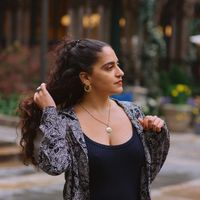

Whether your hair is fine, thinning, or you're struggling with hair loss, hair thickness can be a struggle. The first steps, of course, are to make sure that your shampoo and conditioner aren't weighing your hair down or causing breakage; to hydrate; and to eat a well-balanced, nutritious diet so that your hair can thrive. However, sometimes these steps simply don't do enough, which is when many of us turn to solutions such as hair growth shampoos and oils, along with hair growth vitamins and collagen powders.
Still, hair density and thickness can be elusive. For that reason, we asked trichologists, stylists, and other experts to learn about how to prevent hair thinning, make thin hair look thicker, and foster hair density from the inside out.
Take Care of Your Health
Anabel Kingsley, trichologist and president of the Philip Kingsley clinic and haircare brand, says that if you're in search of thicker hair, it's in your best interest to take care of yourself. One of the main ways to do this is to decrease emotional and mental stress, which she says "can exacerbate hair thinning."
Furthermore, she adds that maintaining a healthy diet plays a tremendous role in hair health. Because your hair is the last place to which your body sends protein and iron, she recommends ingesting ample amounts of both. The Kingsley clinics specifically found that eating 120 grams of protein—which contain all essential amino acids—at breakfast and lunch is ideal for keeping hair strong.
Style Carefully
Jerome Lordet, style director at Pierre Michel Salon, recommends, first and foremost, that people style and comb their hair carefully if they want to avoid breakage and foster growth and thickening. "Be gentle with your hair," he says, cautioning against tugging hard when you brush or frequently wearing tight hairstyles like high buns and ponytails. While having thick or thin hair is often a genetic trait, he says that naturally thin hair can further be damaged by such pulling and rough treatment.
And if your journey to thick, lustrous hair is still a work in progress—or if you have naturally fine hair—styling can go a long way in making your hair look thicker than it is. In those cases, Kingsley recommends getting highlights. "It can make the hair look thicker as it plumps the hair shaft and adds texture," he explains. "Just make sure not to over-process. This may cause substantial breakage."
Take Care of Your Scalp
Kingsley stresses that treatment for hair thinning should not just create the appearance of a thicker mane. Instead, it should also "target hair thinning by optimizing the scalp environment and providing internal nutritional support."
Get exclusive access to fashion and beauty trends, hot-off-the-press celebrity news, and more.
Indeed, trichologist and colorist Bridgette Hill says that scalp health is of the utmost importance when thickening or growing hair. Issues like psoriasis, dandruff, and build-up can make it challenging for hair to grow effectively.
Below, check out a few of our favorite products for keeping your scalp healthy and primed for hair growth. And if you're struggling with scalp health, consider investing in a high-quality scalp treatment.
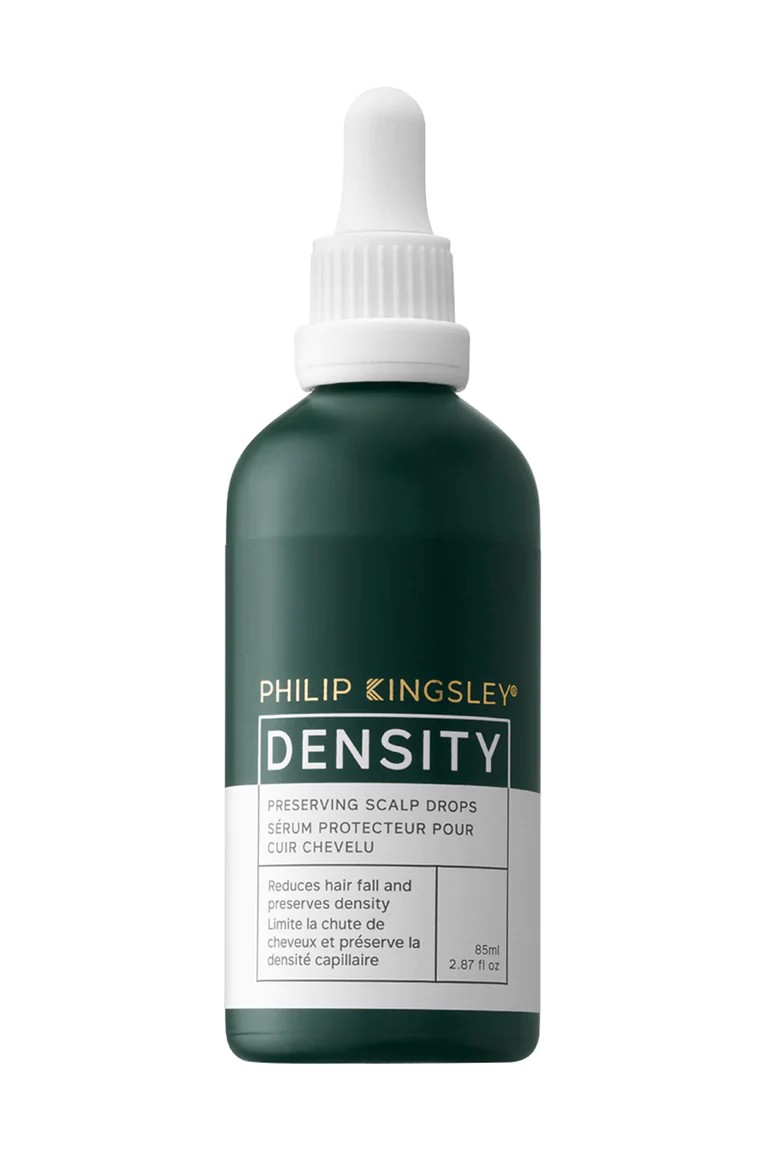
Kingsley recommends these scalp drops for "protecting hair follicles." The drops' ingredients include superstar nutrients like saw palmetto, caffeine, and azelaic acid, and they're made to soothe sensitive scalps.
Pros: trichologist-recommended; plant-based ingredients
Cons: expensive
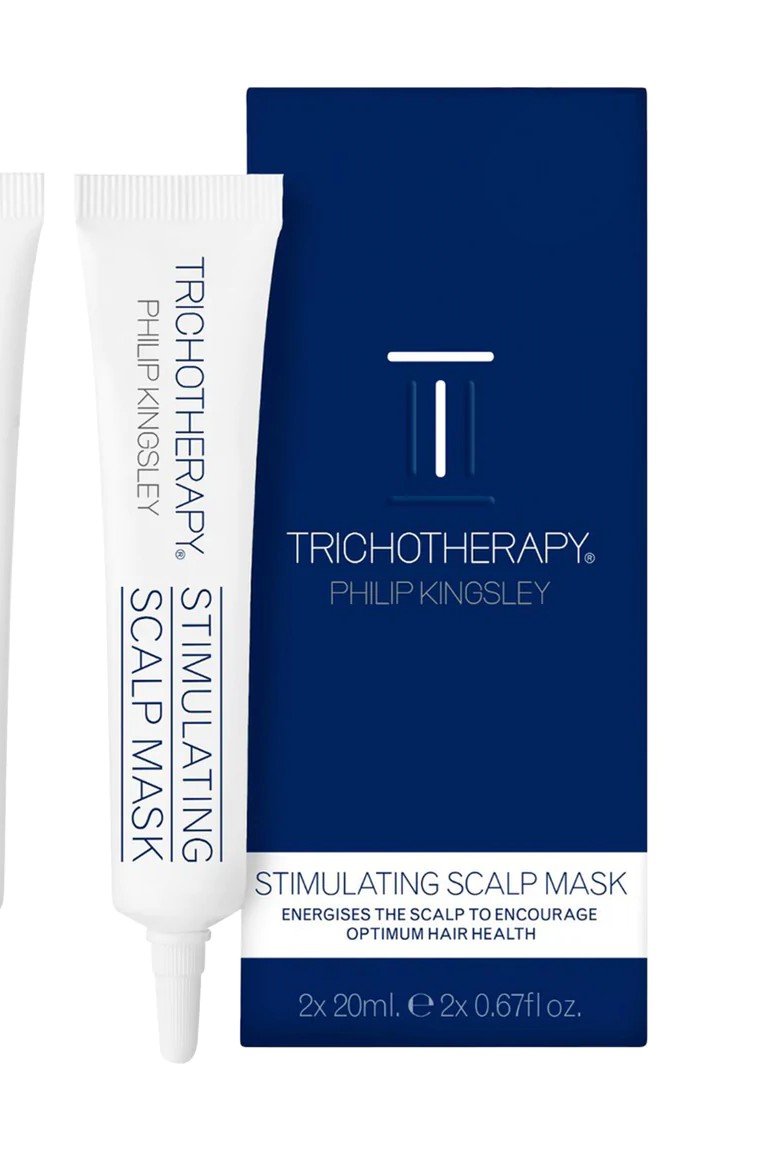
Kingsley also recommends this mask, which is made with caffeine for stimulating hair growth and Vitamin E for healing a dry, flaky scalp. She cites it as an essential "for keeping your scalp in optimal condition."
Pros: trichologist-recommended; soothing; incorporates caffeine; cooling; softens hair
Cons: expensive
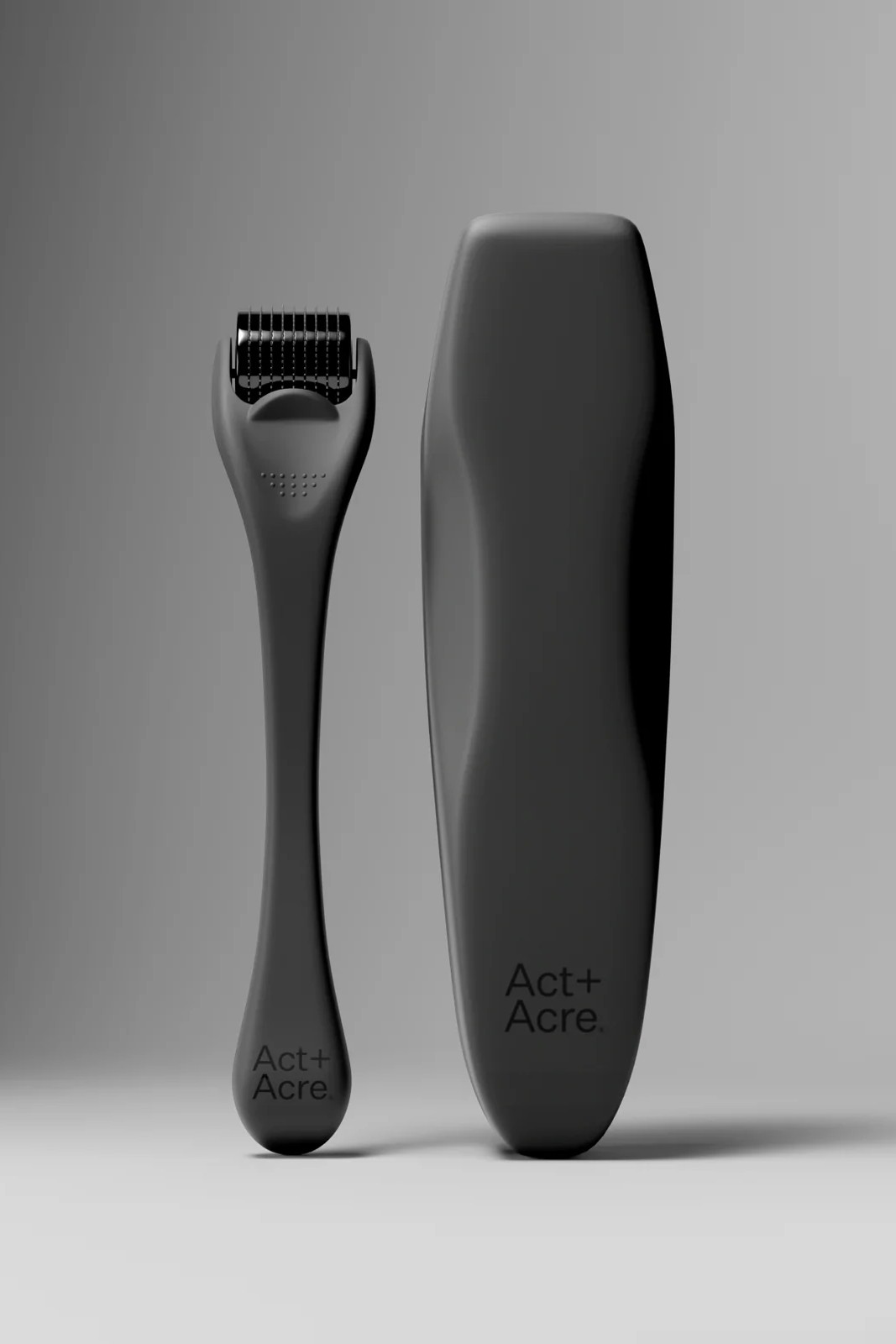
This is one of my favorite new hair tools, though it takes a bit of time to learn how to use. I tried it after suffering from some post-Covid hair loss, and found it a bit difficult use, considering I have a lot of long, curly hair. Once I got the hang of using it, however, I found it therapeutic, effective, and just-plain luxurious.
Pros: enhances efficacy of scalp serums; luxurious
Cons: can be difficult to clean; difficult to use on long hair
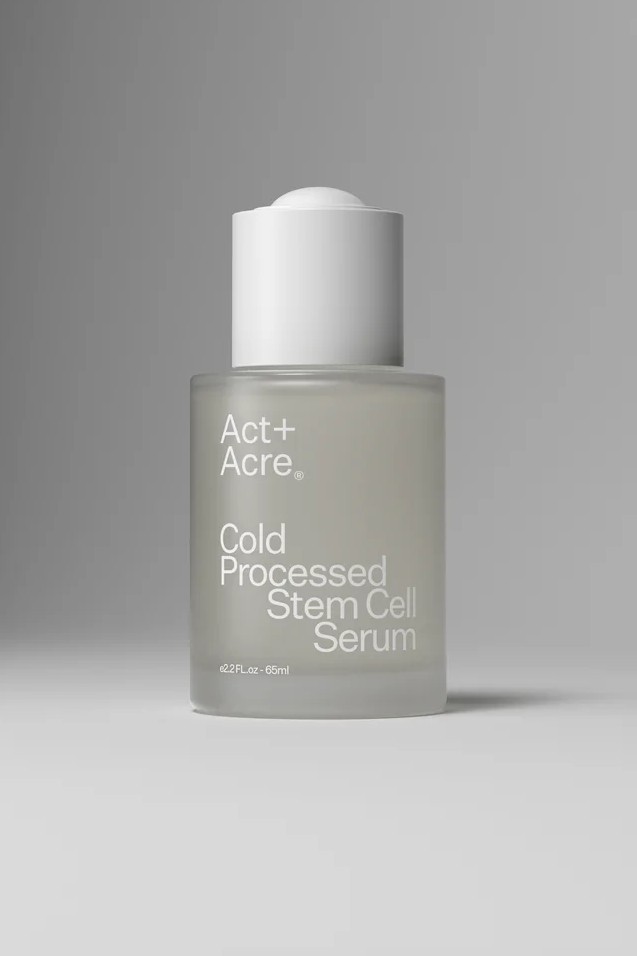
I love this scalp serum, and regularly massage it into my scalp with Act + Acre's dermaroller or simply with my fingers. It smells fantastic (but not overwhelming), and it instantly soothes itchiness and irritation.
Pros: cooling; subtle scent; cold-pressed; natural ingredients; editor-recommended; clinically tested
Cons: expensive
Invest In High-Quality Hair Products
Haiya Eliza, hairstylist and founder of HERcurls, says that her number-one piece of advice for yielding the thick hair of your dreams is to invest in high-quality hair products.
"Treat haircare like skincare: You have cleansers, toners, moisturizers, and face masks—be thoughtful in the same way about your hair," she says. "When you're taking care of your skin, it's clear, looks good, and you don't need to put on much makeup. It's the same thing with your hair: If you're taking care of your hair, you're not going to need to worry about styling so much."
This means staying away from sulfates and parabens along with looking for products with ingredients that foster hair growth and scalp health. Dr. Peter Young, a board-certified dermatologist and the medical director for hair loss brand Keeps , specifically recommends the use of hair thickening shampoos, which are designed to make hair appear thicker.
"Thickening shampoos (and other hair care products) can give the appearance of thicker, healthier-looking hair," he says. "While thickening shampoo can’t treat hair loss on its own, it can really help you maximize the hair you have."
Never heard of these shampoos and not sure where to begin? When shopping for the best formula, Dr. Young says that the ones that work best "include ingredients that boost and protect hair health, give your hair a fuller, healthier looking appearance, and make thin or thinning hair look thicker." Among these ingredients are collagen and protein, which he says "strengthen and thicken each hair strand." Furthermore, he adds, "Some thickening shampoos also contain ingredients geared toward improving the health of your hair and making it look thicker, such as biotin, saw palmetto, caffeine, and green tea."
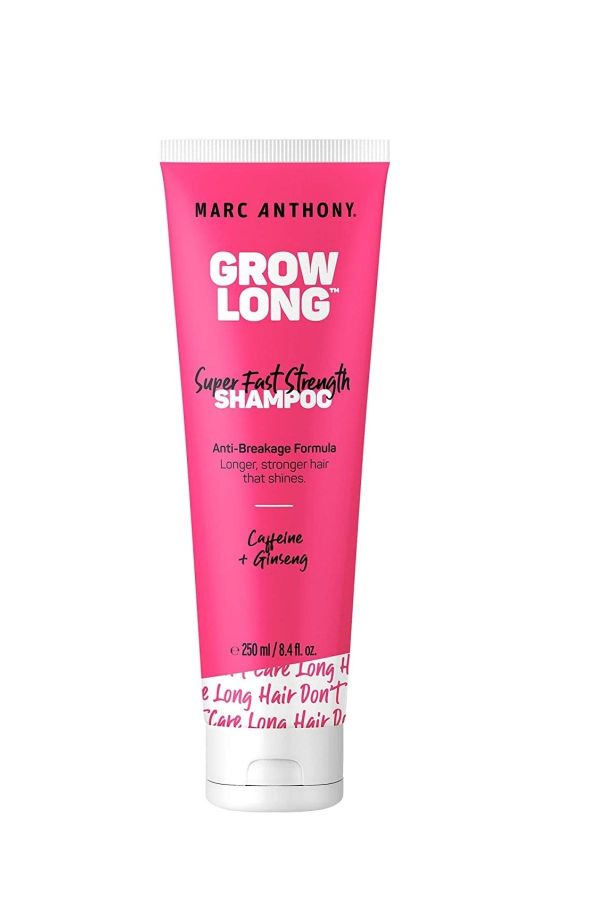
This affordable option uses caffeine, one of Dr. Young's recommended ingredients, to invigorate hair growth by stimulating the scalp. I've used it and its subtle smell and deeply cleansing formula.
Pros: affordable; pollution-fighting; contains caffeine
Cons: can be drying
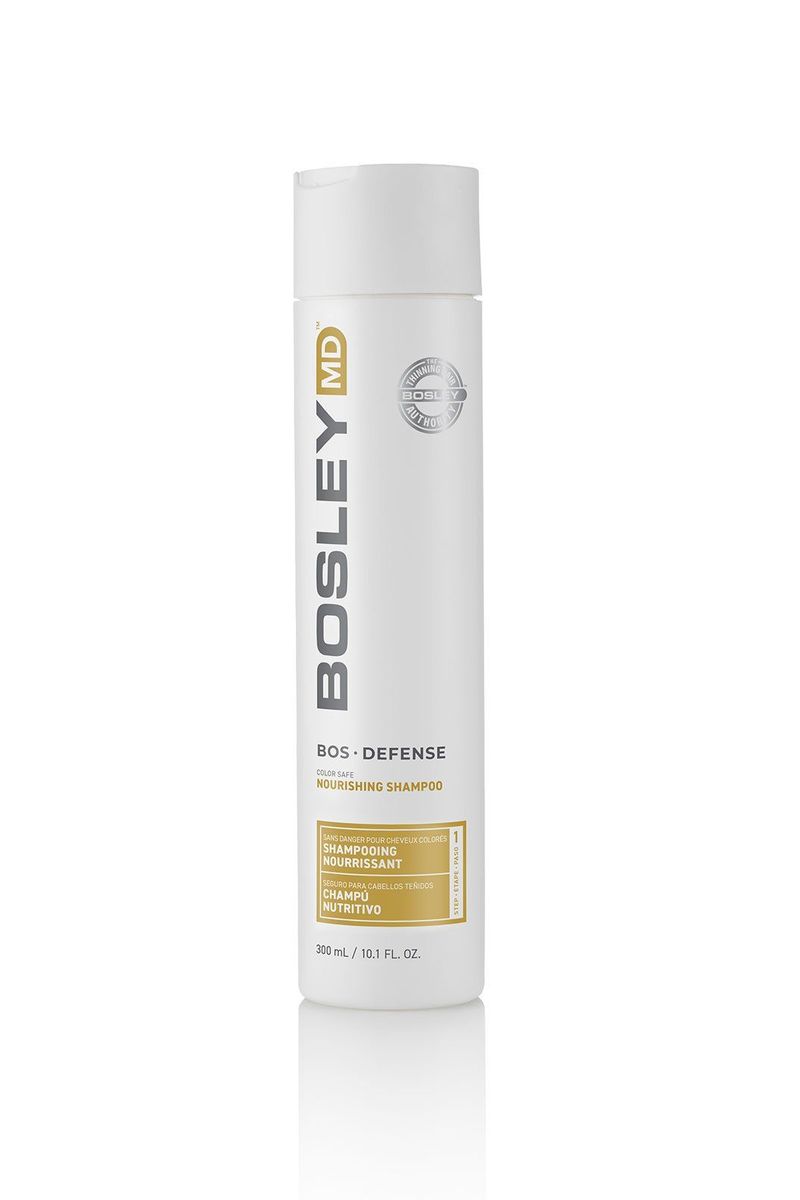
“The Bosley shampoos and conditioners are formulated with biotin, niacin, and panthenol to help nourish and strengthen hair and encourage growth," says certified trichologist Gretchen Friese. "It protects against thinning by removing build-up from the scalp surface, while cleansing hair of product build-up and pollution.”
Pros: trichologist-recommended; fights build-up; color-safe; cruelty-free; free of parabens, sulfates, and gluten; cruelty-free
Cons: some users don't like the strong peppermint smell
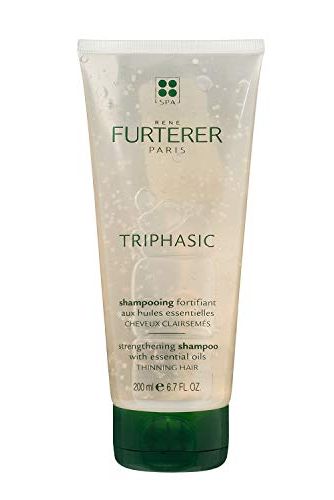
Hill says that this shampoo almost instantly makes thinning hair appear thicker and more voluminous. She explains, "This shampoo fortifies proteins at the base of the hair fiber to give the illusion of thicker, denser hair."
Pros: exfoliating; protein-infused; trichologist-recommended; yields quick results
Cons: contains essential oil beads that may feel irritating to some
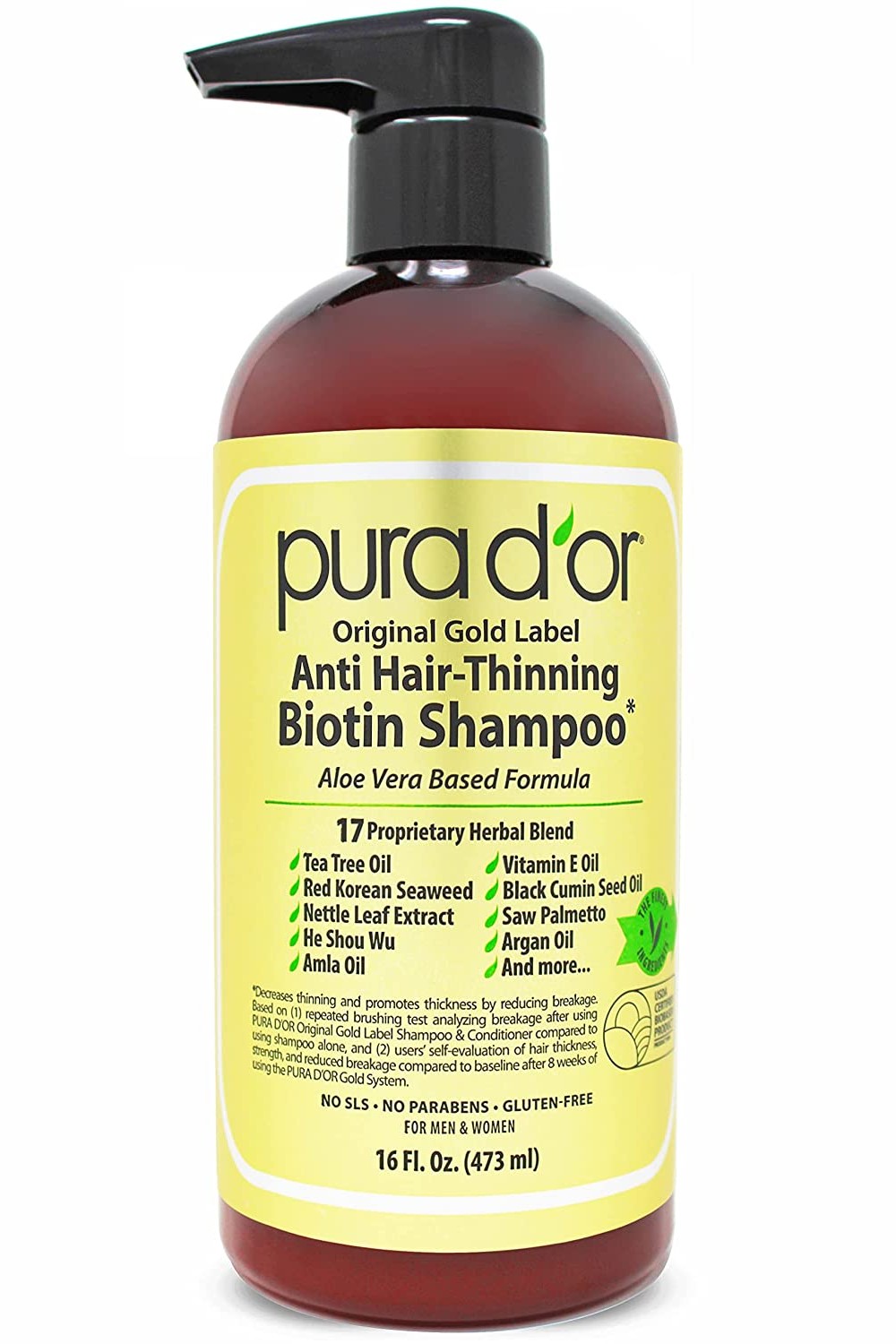
This shampoo is Amazon's #1 bestseller for hair regrowth shampoos, and it contains a number of Dr. Young's favorite plant-based ingredients such as saw palmetto, green tea, and biotin.
Pros: color-safe; contains biotin; affordable; free of sulfates and parabens
Cons: requires consistent, prolonged use to see results
Consider Medication
If you're styling carefully, eating well, and drinking enough water, but you still struggle with hair thinning, Dr. Young recommends visiting a dermatologist and/or trying an over-the-counter medication that's clinically proven and FDA-approved for growing thick hair: Minoxidil. "Minoxidil is an over-the-counter topical medication that comes in 2% and 5% concentrations, and is available as a solution or foam," he explains, noting that, unlike other solutions such as finasteride, minoxidil is approved for treating both male and female pattern hair loss.
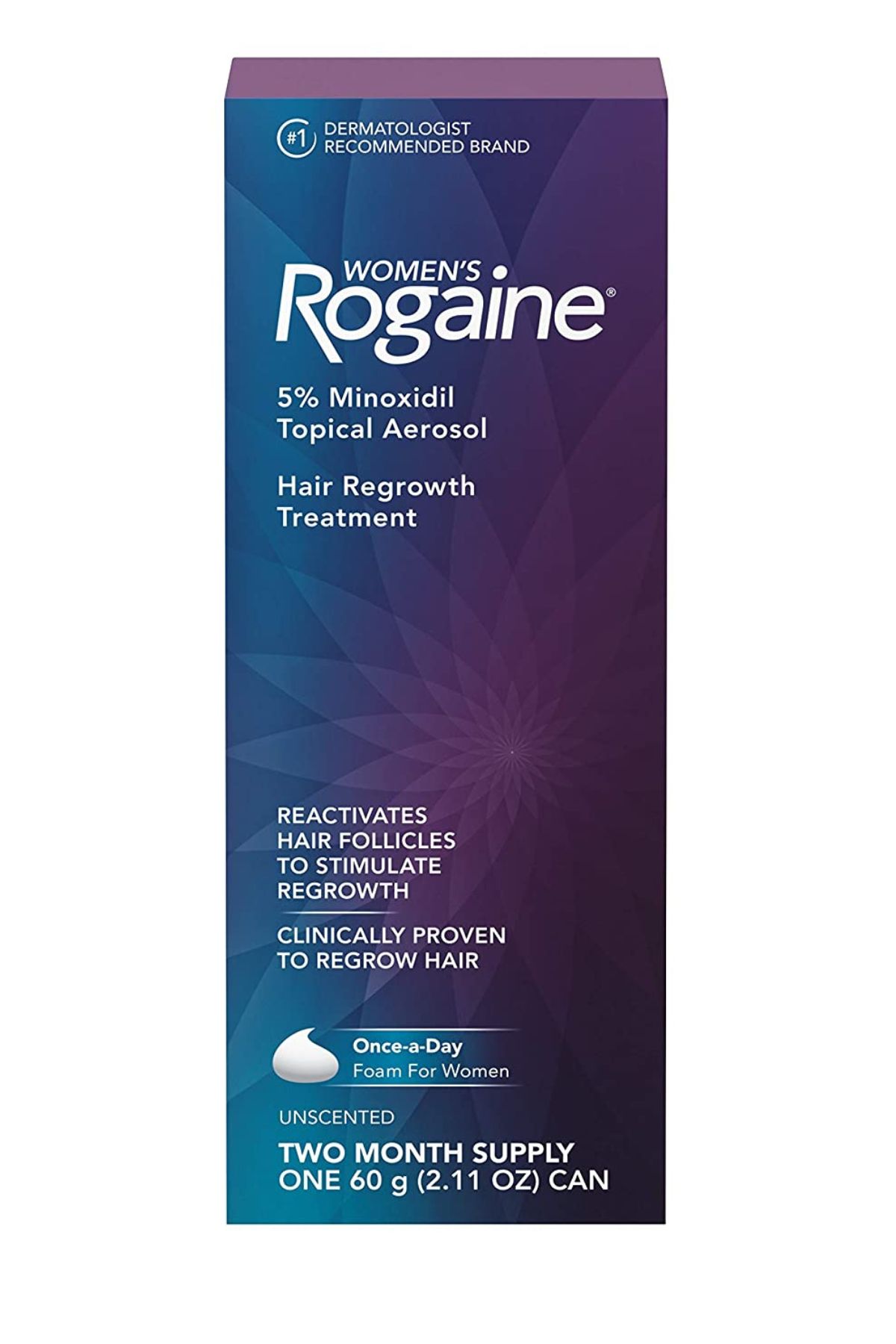
"Minoxidil doesn’t stop hair loss, but it does help grow new hair thicker and faster than before," says Dr. Young. This topical foam, which boasts a high-potency 5 percent minoxidil, absorbs easily into the scalp without making any existent hair appear greasy.
Pros: FDA-approved; clinically proven treatment; dermatologist-recommended; lightweight foam
Cons: some users find it sticky
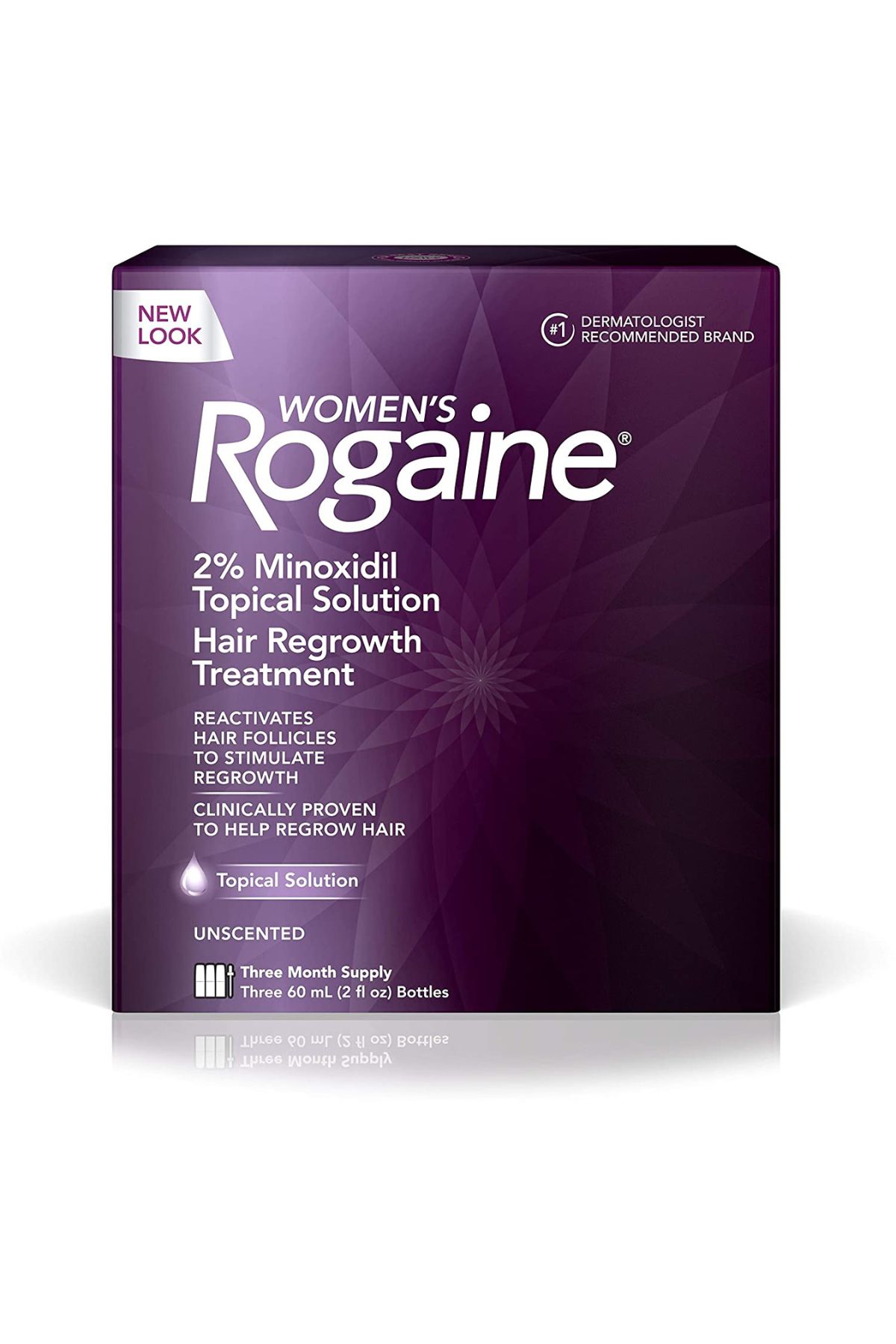
If foam isn't your thing and you prefer the texture of a more traditional serum, try this option. It's also made with 2 percent minoxidil instead of 5 percent, just in case you're worried about starting off too strong. Reviewers love how effective it is, but warn users to tilt their heads back or wear a visor during application so it doesn't drip onto the face or eyes.
Pros: FDA-approved; clinically proven treatment; dermatologist-recommended; smooth serum
Cons: multiple bottles instead of just one
Meet the Experts
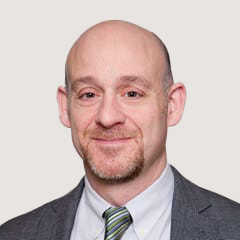
Peter C. Young, MD is the Keeps Medical Director and a board-certified dermatologist. Dr. Young had a distinguished career serving as a physician in the U.S. Army for nine years before going on to practice dermatology in Massachusetts for 22 years. In addition to his published medical articles, Dr. Young has also been a speaker at national medical meetings on teledermatology and is a fellow of the American Academy of Dermatology. Dr. Young is currently located in Estero, FL.
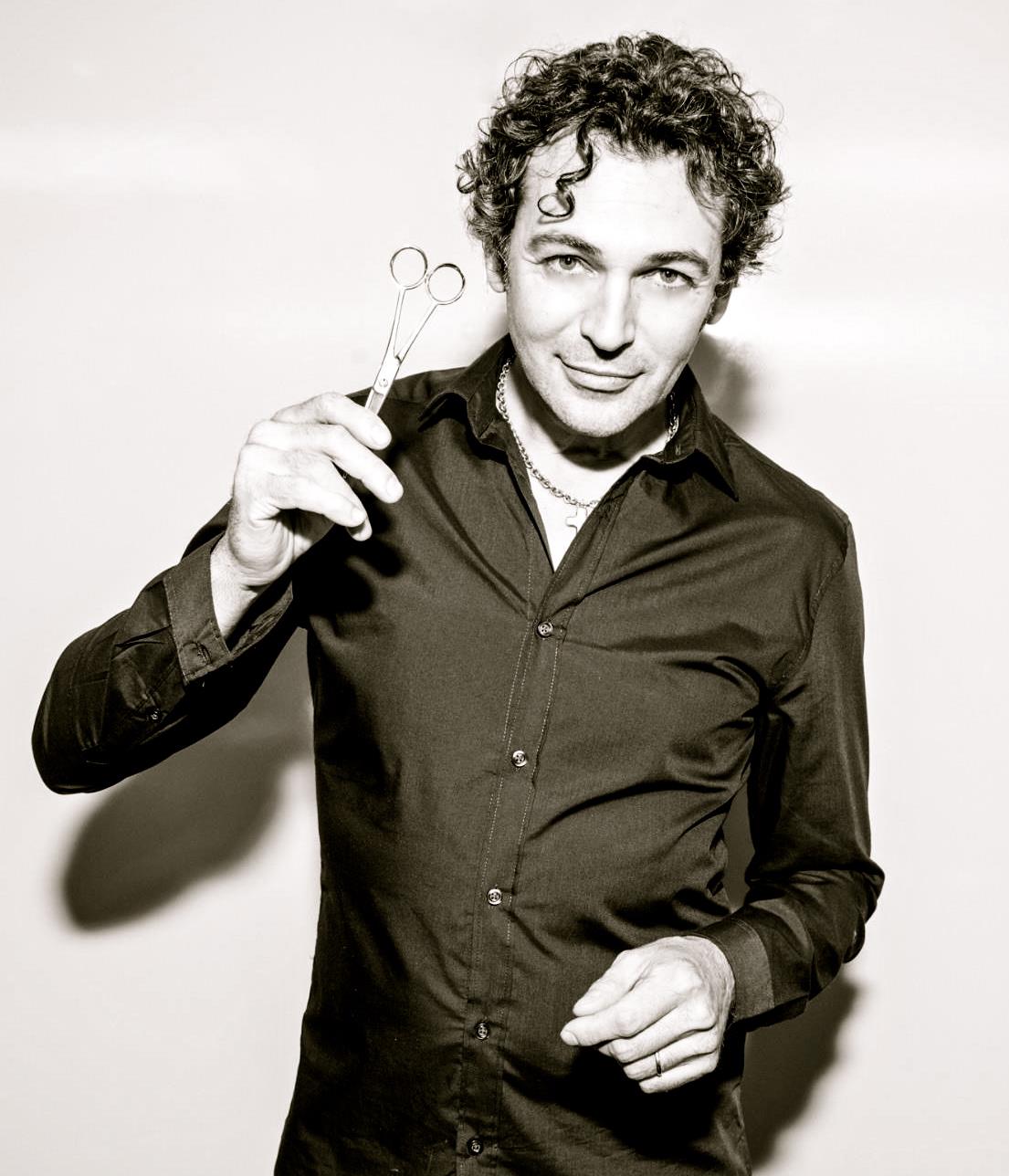
Jerome Lordet is a hair stylist with over twenty years of experience. Initially trained by Bruno Pittini of Jacques Dessange in his native France, he has since styled a number of celebrities, including Bianca Jagger, Raquel Welch, Jessica Simpson, and more. He currently serves as the style and salon director of Pierre Michel Salon in New York City.
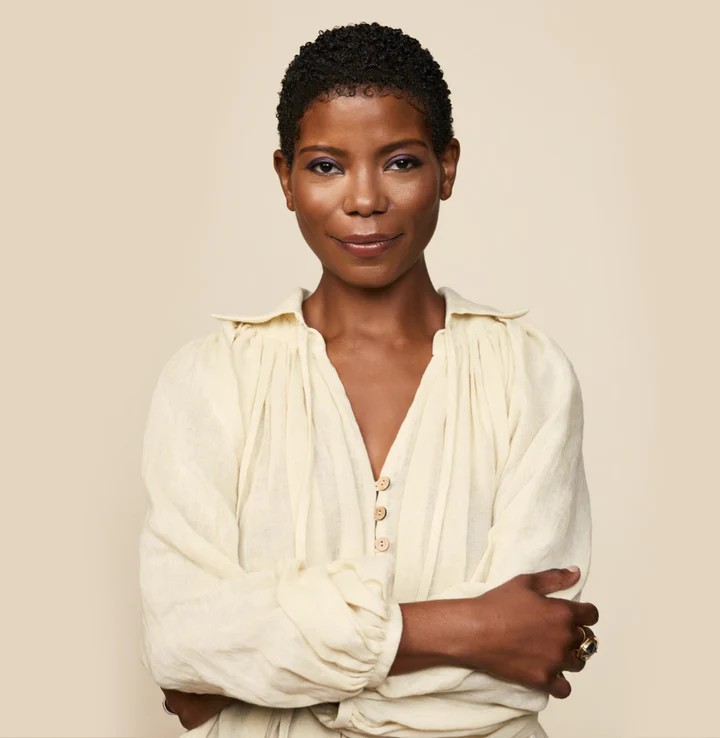
Bridgette Hill worked as a scalp therapist for decades and has also been an editorial stylist and colorist. She is passionate about optimizing scalp health and became a certified trichologist in 2016.
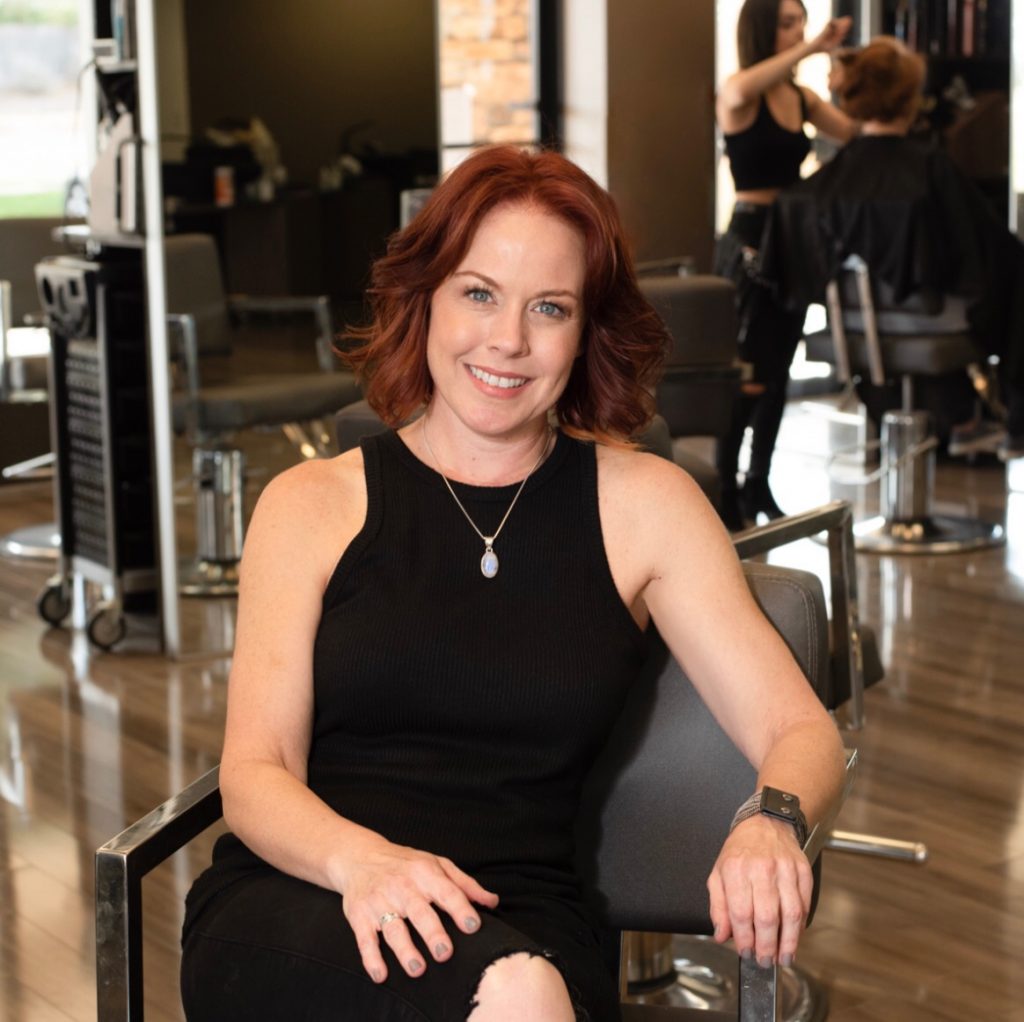
Gretchen Friese is a certified trichologist and trichology consultant. After working in the hair industry in Los Angeles for over 20 years, she relocated to Denver, where she now works with Foushee SalonSpa and Element 5.
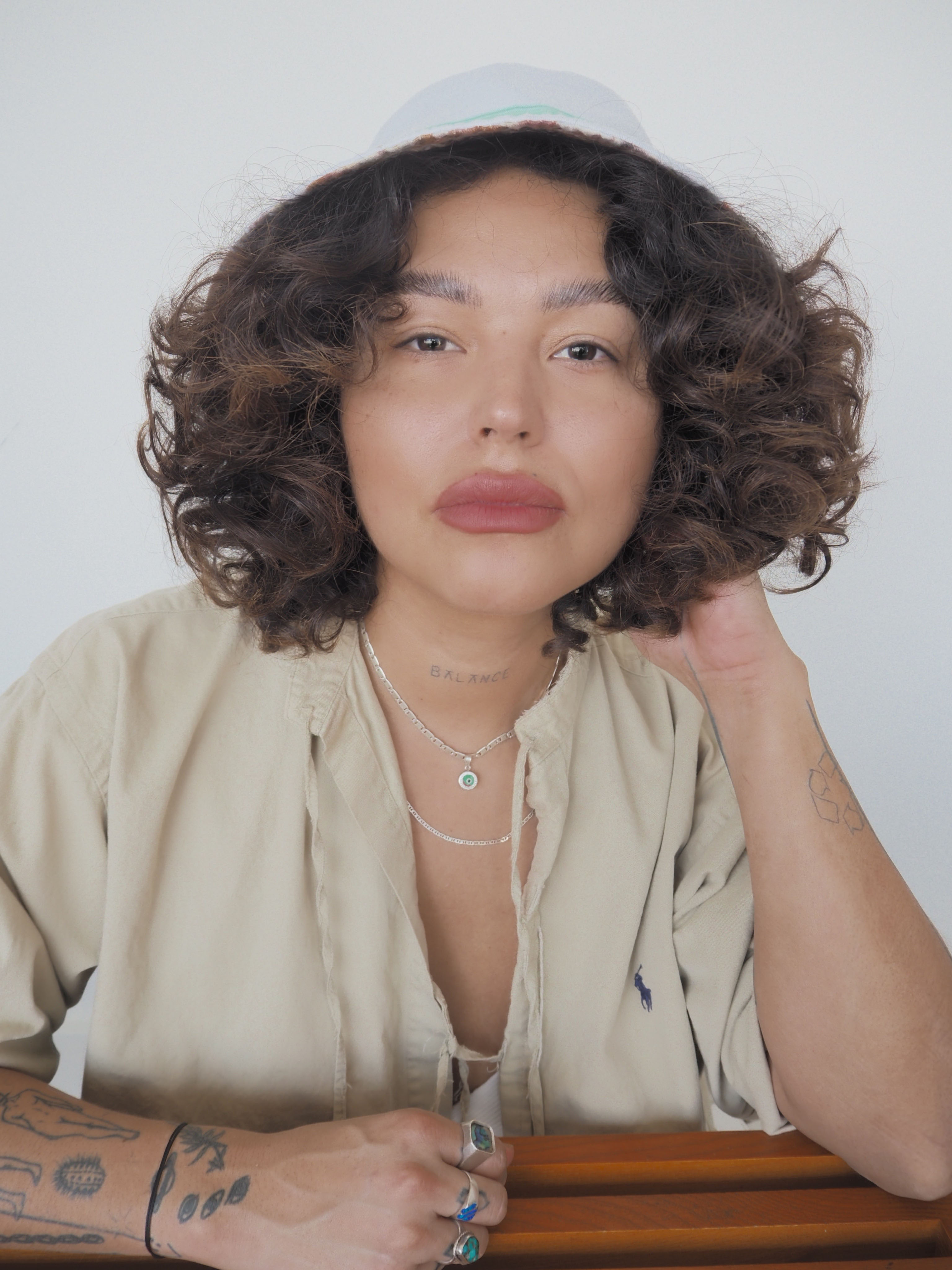
Haiya Eliza is a Cuban-Bolivian hairstylist and founder of HERcurls, a brand focused on educating curl-owners about how to best care for and style their hair. Originally from Miami, she is currently based in Dallas, Texas.
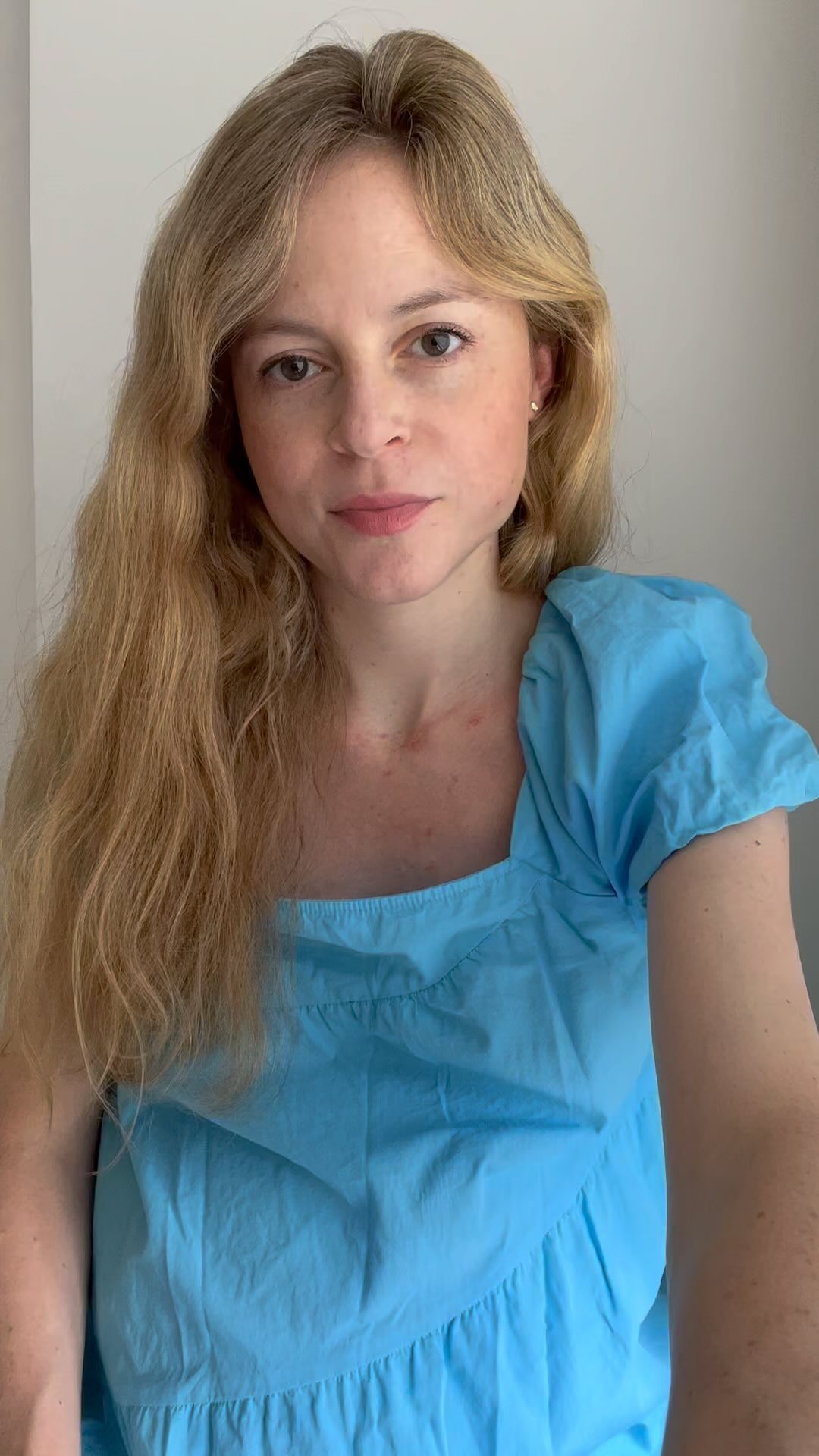
Anabel Kingsley is a trichologist and president of Philip Kingsley, a haircare brand devoted to improving hair and scalp health from the inside out.
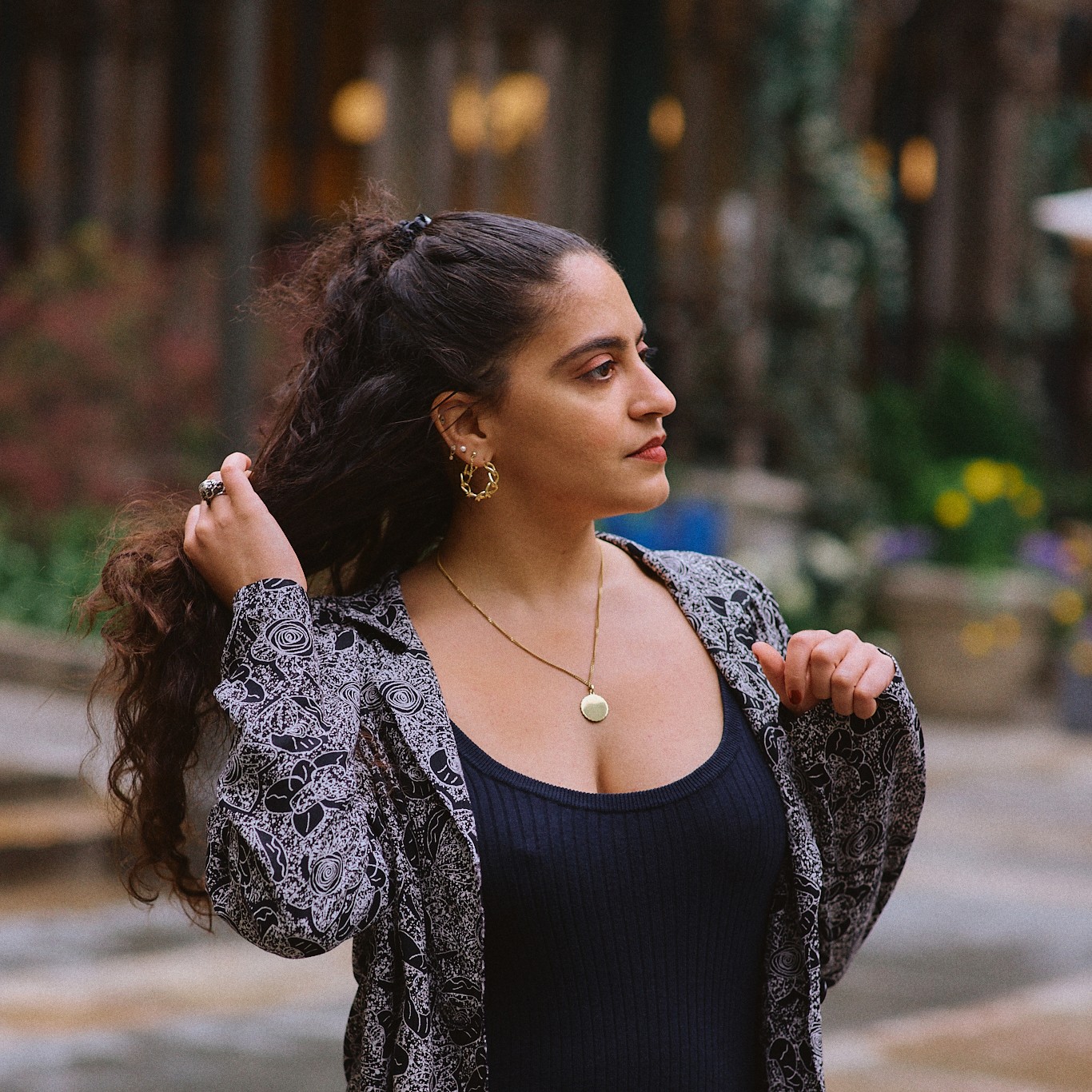
Gabrielle Ulubay is a Beauty Writer at Marie Claire. She has also written about sexual wellness, politics, culture, and fashion at Marie Claire and at publications including The New York Times, HuffPost Personal, Bustle, Alma, Muskrat Magazine, O'Bheal, and elsewhere. Her personal essay in The New York Times' Modern Love column kickstarted her professional writing career in 2018, and that piece has since been printed in the 2019 revised edition of the Modern Love book. Having studied history, international relations, and film, she has made films on politics and gender equity in addition to writing about cinema for Film Ireland, University College Cork, and on her personal blog, gabrielleulubay.medium.com. Before working with Marie Claire, Gabrielle worked in local government, higher education, and sales, and has resided in four countries and counting. She has worked extensively in the e-commerce and sales spaces since 2020, and spent two years at Drizly, where she developed an expertise in finding the best, highest quality goods and experiences money can buy.
Deeply political, she believes that skincare, haircare, and sexual wellness are central tenets to one's overall health and fights for them to be taken seriously, especially for people of color. She also loves studying makeup as a means of artistic expression, drawing on her experience as an artist in her analysis of beauty trends. She's based in New York City, where she can be found watching movies or running her art business when she isn't writing. Find her on Twitter at @GabrielleUlubay or on Instagram at @gabrielle.ulubay, or follow her art at @suburban.graffiti.art